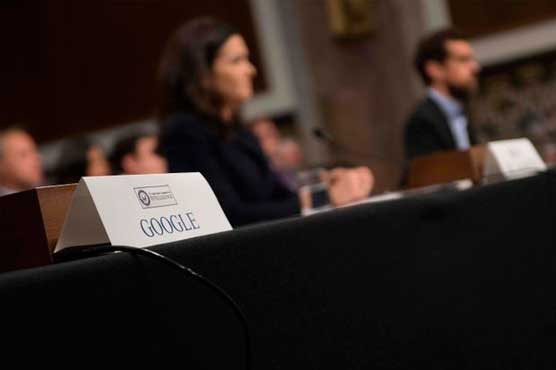Amazon, Google, others to testify before US Senate on data privacy

The White House said in July it was working to develop consumer data privacy policies.
WASHINGTON (Reuters) - Six major web and internet service companies, including AT&T, Twitter and Google, will detail their consumer data privacy practices to a US Senate panel on September 26, according to a congressional statement on Wednesday.
The Senate hearing will give the six technology-related companies, which also include Amazon.com, Apple and Charter Communications companies “an opportunity to explain their approaches to privacy”, Republican US Senate Commerce Committee Chairman John Thune.
They will also testify on “how they plan to address new requirements from the European Union and California, and what Congress can do to promote clear privacy expectations without hurting innovation”, Thune said.
Data privacy has become an increasingly important issue, fueled by massive breaches that have compromised the personal information of millions of US internet and social media users, as well as breaches involving large retailers and credit reporting agency Equifax Inc.
On Tuesday, the Internet Association, which represents more than 40 major internet and technology companies, said on Tuesday it backed modernising US data privacy rules but wants a national approach that would preempt new regulations in California that take effect in 2020.
The witnesses at the September 26 Senate hearing include Google’s chief privacy officer, Twitter’s global data protection officer and Apple’s vice president for software technology.
The White House said in July it was working to develop consumer data privacy policies and officials had been meeting major firms as it looked to eventually seeing the policies enshrined in legislation.
California Governor Jerry Brown signed data privacy legislation in June aimed at giving consumers more control over how companies collect and manage their personal information, although it was not as stringent as new rules in Europe.
Under the law, large companies would be required starting in 2020 to let consumers view the data they have collected on them, request deletion of data, and opt out of having the data sold to third parties.
The European Union General Data Protection Regulation took effect in May, replacing the bloc’s patchwork of rules dating back to 1995. Breaking privacy laws can result in fines of up to four per cent of global revenue or 20 million euros ($23.2 million), whichever is higher, as opposed to a few hundred thousand euros.

